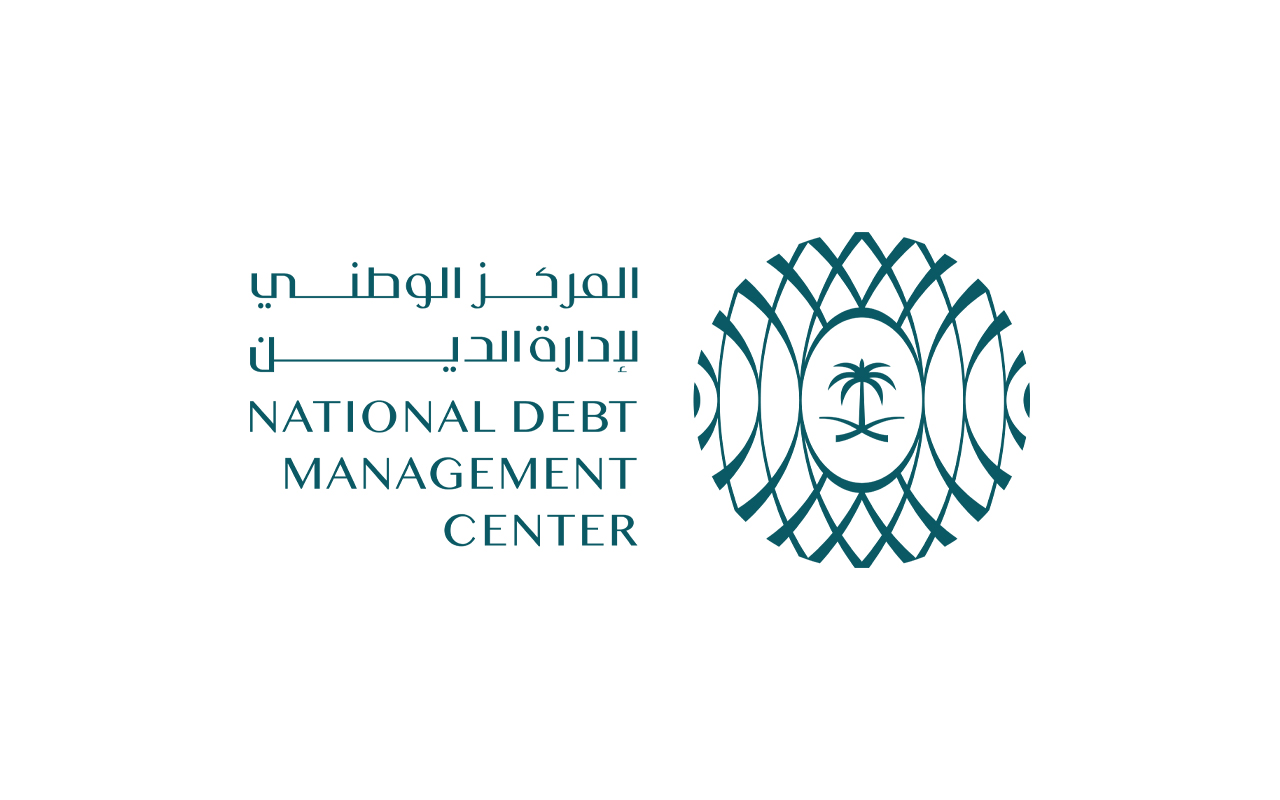National Debt Management Center (NDMC)
The National Debt Management Center was initially established as the Public Debt Management Office in the fourth quarter of 2015 as an initiative of the Fiscal Sustainability Program. Then, by Council of Ministers Decision No. 139 dated October 15, 2019, it was transformed into the 'National Debt Management Center'.
The National Debt Management Center enjoys an independent legal personality, as well as financial and administrative independence. It is organizationally affiliated with the Minister of Finance and contributes to formulating and developing the Kingdom's public debt policy. The center is responsible for debt management tasks, which include securing the Kingdom's financing needs at the best possible costs in the short, medium, and long term, with risks aligned with the Kingdom's financial policies. Additionally, it aims to ensure the sustainability of the Kingdom's access to various debt markets for the issuance of sovereign debt instruments at fair pricing. The center also monitors credit rating activities in collaboration with relevant government entities
Objectives of the National Debt Management Center
Article three of the regulations for the National Debt Management Center, issued in November 2019, includes several objectives such as: contributing to the formulation of the Kingdom's public debt policy and developing plans and programs to enhance this policy; ensuring sustainable access to various local and international debt markets at fair pricing; contributing to the enhancement of the Kingdom's financial policy within its jurisdiction, in agreement with the Ministry of Finance; proposing relevant laws related to public debt management and suggesting amendments to the existing ones, and submitting them through the standard legal procedures; approving performance indicators and benchmarks for public debt levels and the Kingdom's credit rating indicators, and continuously developing these indicators and benchmarks in collaboration with relevant government entities; developing the necessary tools, methodologies, and techniques for public debt repayment, proposing amendments to the existing ones, and submitting necessary actions to complete the legal procedures, in agreement with the relevant entities; preparing and publishing studies and scientific research in the fields of public debt and its developments or participating in such activities; and publishing public debt data to enhance transparency.
The Kingdom's public debt
It is one of the tools for providing financing solutions, representing the funds borrowed by the Saudi government from local and international financial and governmental institutions. These funds serve as an additional element to finance the Kingdom's activities and contribute to alleviating the burden on the general budget, whether to cover expenses, finance domestic or international projects, or ensure the continuity of the Kingdom's financial growth and stability.
Public debt is a financial component that contributes to diversifying financing methods, which in turn stimulates economic development. Public debt consists of internal public debt, represented by bonds owned by parties within the Kingdom, such as independent government institutions, commercial banks, investment companies, and others, in addition to external public debt, which is the total of bonds and instruments owned by parties outside the Kingdom, such as international investors including investment funds, pension institutions, insurance companies, financial institutions, and central banks.
The role of the National Debt Management Center in developing the fixed income market
The Issuance Program in Saudi Riyals was established in July 2017 to meet the requirements of the global and local debt markets and to unify all local issuances under this program. In April 2018, the Saudi Stock Exchange (Saudi Tadawul) announced the listing and trading of government debt instruments in the government bond market, and it now has an independent index. In 2018, the Sukuk and Bond Market Index closed at 988.2 points, and the trading value of corporate Sukuk and bonds reached approximately SAR25.9 million. In the same year, the Primary Dealers Program for the Kingdom's government issuances was launched, which included five local financial institutions participating in the primary market for monthly local issuances. Additionally, in October 2022, five international financial institutions were added to the Primary Dealers Program.
The efficiency of the National Debt Management Center and its execution of the plans and strategies of the Fiscal Sustainability Program and the Financial Sector Development Program were highlighted in the closing of its second international euro-denominated issuance from the Kingdom's government bond program. The center announced the issuance on the morning of Wednesday, February 24, 2021, and it was closed on the same day.
This operation was an unprecedented step, in which the center seized the opportunity to enter the euro market (the second largest market after the US dollar market) by issuing negative-yield debt instruments. It became the largest negative-yield tranche issued outside the European Union. The total subscription requests reached more than EUR5 billion, with a coverage ratio exceeding three times the total issuance. The total issuance amounted to EUR1.5 billion (SAR6.83 billion). It was the second international issuance for 2021, following the Kingdom's issuance of USD5 billion in January.
The contribution of the National Debt Management Center to the Kingdom's credit rating
The center works with relevant government entities to present the Kingdom's credit efforts, aiming to achieve the highest available credit rating by highlighting the continuous efforts to improve public finance, increase spending efficiency, respond to political and economic changes, and enhance the attractiveness of the Saudi market and its ability to attract substantial and high-quality investments. The center proactively enhances its communication with credit rating agencies to ensure that information is conveyed and that the rating reflects the public financial developments in the Kingdom.
The credit rating is an indicator of a country's creditworthiness, its ability to service its debts, and the likelihood of defaulting on repayment at maturity. Credit rating agencies base their analysis on financial, economic, and institutional factors, as well as the level of exposure to international external variables.
The Kingdom is the only country in the G20 to achieve two upgrades and a positive outlook from the three relevant credit rating agencies in 2023. These actions primarily indicate the strength of the Kingdom's economy and the success of its investments in various sectors.
